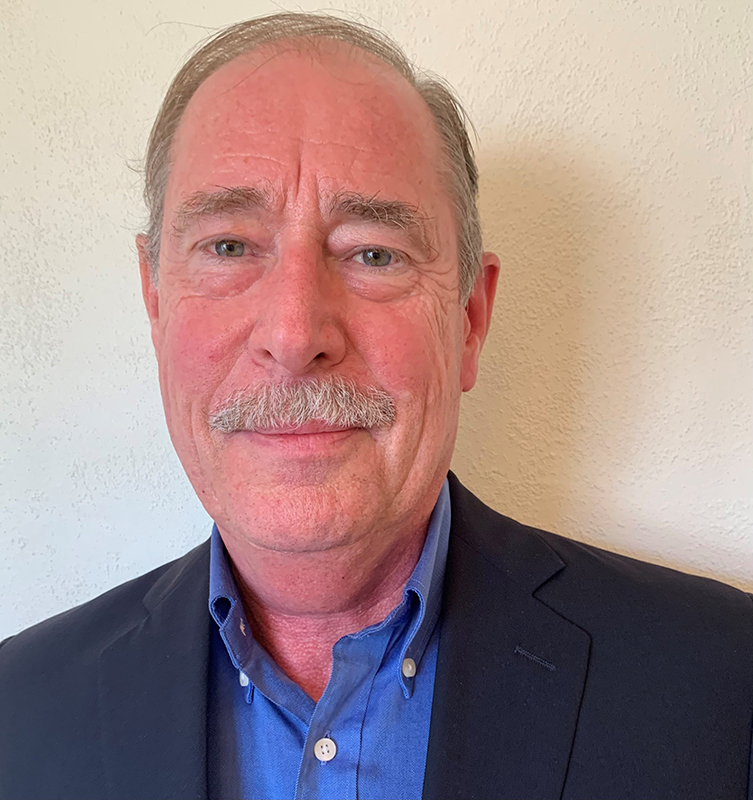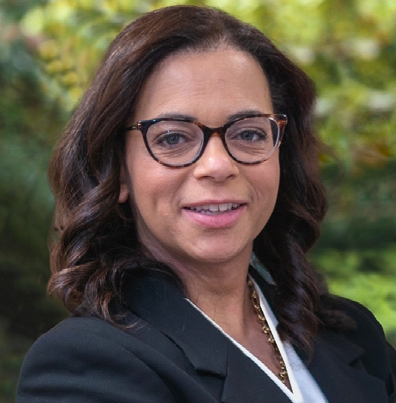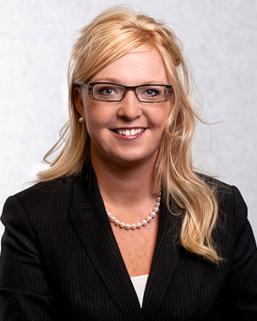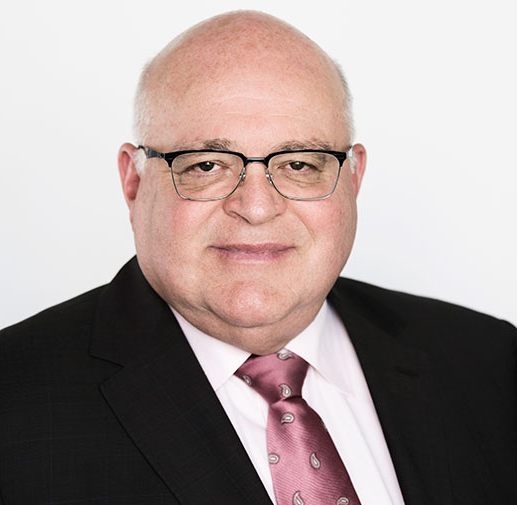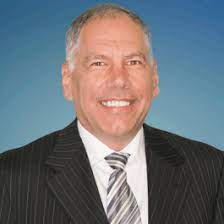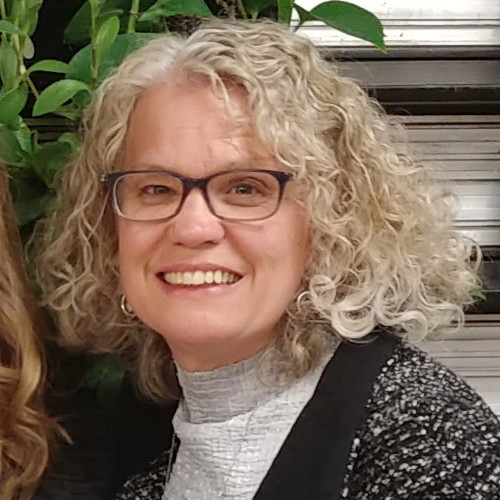Navigating Labour Relations, Arbitration, and Employment Policies in Alberta
What is the Calgary Labour Arbitration and Policy Conference 2025?
The Calgary Labour Arbitration and Policy Conference 2025 is designed to provide HR professionals, labour relations specialists, legal practitioners, and union representatives with the latest insights into labour arbitration, employment law, and workplace policies. Hosted by Lancaster House, this two-day conference offers a comprehensive program featuring expert-led workshops, keynote speeches, and interactive sessions focused on the unique challenges and developments in Alberta’s labour landscape.
What We’re Covering
This year’s conference addresses critical topics shaping the future of labour relations and employment policies:
Essentials of Advocacy in Mediation – Strategies for effective preparation and delivery in the mediation process.
Conducting Fair and Bias-Free Investigations – Practical approaches to ensure integrity and impartiality in workplace investigations.
Accommodating Elusive Disabilities – Best practices for obtaining medical information and creating appropriate accommodations.
Labour Relations in Uncertain Times – Exploring the implications of economic and political climates on the world of work.
Technological Change and Workplace Privacy – Addressing issues related to surveillance, monitoring, and privacy in the digital age.
Implementing Equity, Diversity, and Inclusion (EDI) – Strategies for fostering inclusive environments within unionized workplaces.
Who Should Attend?
This conference is tailored for professionals involved in labour relations and employment law:
HR Managers and Directors – Enhance your understanding of arbitration processes and policy development.
Labour Relations Specialists – Stay informed on the latest arbitration cases and legislative changes.
Legal Practitioners – Gain insights into emerging trends and case law in labour and employment sectors.
Union Representatives – Learn effective advocacy and negotiation strategies.
Corporate Executives – Understand the impact of labour policies on organizational operations.
Key Learning Outcomes
By attending, you will:
Develop skills to conduct impartial and thorough workplace investigations.
Understand legal requirements and best practices for accommodating disabilities.
Analyze the impact of economic and political factors on labour relations.
Navigate challenges posed by technological advancements in workplace privacy.
Implement effective EDI initiatives within unionized environments.
Why Choose Lancaster House?
With a legacy of excellence in legal publishing and labour arbitration insights, Lancaster House is committed to delivering high-quality educational experiences. Our conferences are curated by leading experts, ensuring participants receive current, relevant, and practical information applicable to their professional roles.
Expert-Led Sessions – Learn from distinguished professionals in labour law and arbitration.
Comprehensive Materials – Access detailed resources and case studies.
Networking Opportunities – Connect with peers and industry leaders.
Practical Insights – Gain strategies ready for immediate implementation.
Thursday, June 12, 2025
Breakfast: 8:00 am – 8:40 am MT
Introductory remarks: 9:00 am – 9:10 am MT
Pre-Conference Concurrent Workshops (Choice of 1 of 3)
*Workshops sold separately from stand-alone conference.
Workshop schedule: 9:00 am – 4:00 pm MT
(The schedule will run concurrently for all three workshops until 4:00 pm)
The ability to use mediation to successfully resolve grievances is essential for labour relations practitioners and requires effective preparation, strong negotiation and advocacy skills, and attention to the needs and interests of each party. In this workshop, panelists will provide expert guidance on representing workplace parties at mediation. The session will cover practical skills and key legal concepts, equipping attendees to:
- Recognize how power imbalances and “invisible” barriers may impact the mediation process and take steps to address those barriers;
- Determine when it is appropriate to use mediation to seek to resolve a grievance;
- Select a mediation process (such as mediation-arbitration versus distinct mediation and arbitration processes) and select an appropriate mediator;
- Prepare for the mediation strategically and thoroughly;
- Communicate effectively and use different negotiating styles to relay a position and bridge impasses;
- Understand and leverage opposing parties’ interests and objectives;
- Apply key legal and practical considerations in crafting settlement agreements; and
- Recognize when settlement is unlikely and arbitration is necessary.
Attendees will work together on an interactive exercise guided by the workshop facilitators, allowing participants to apply principles and practice skills learned throughout the day in a supportive setting.
Workplace investigations are essential for addressing harassment and discrimination, but if mishandled, they can cause further harm to employee well-being and lead to the loss of valuable employees. This full-day workshop offers hands-on scenarios and practical insights to ensure fair, effective investigations that strengthen workplace culture. The panel will explore the following questions:
- Identify procedural mistakes that can render investigations inadequate;
- Understand how adjudicators assess and award damages for an employer’s failure to investigate;
- Evaluate when to conduct an internal investigation versus retaining an external investigator;
- Recognize signs of trauma in complainants and witnesses and adapt investigative approaches accordingly;
- Apply interview techniques that encourage participation while minimizing re-traumatization;
- Ensure investigations accommodate employees with disabilities, language barriers, and other diverse needs;
- Implement practical steps to protect involved parties during an ongoing investigation;
- Enhance transparency in investigative decision-making processes; and
- Explore ways unions and management can support workplace positive workplace relations after an investigation.
An employer’s duty to accommodate an employee’s disability can apply even without a formal diagnosis. This session explores the challenges of complex disabilities, offering guidance on appropriate inquiries, effective accommodations, and when undue hardship has been established. Participants will engage in practical scenarios and leave this session with an understanding of key issues, including:
- What it means to have a medical condition that eludes diagnosis;
- Requirements for establishing a disability and how this applies to disabilities that are difficult to diagnose;
- What information an employer is entitled to in the accommodation process for difficult-to-diagnose disabilities and how employers can approach asking for this information;
- What information an employee must and/or should provide in the accommodation process for these disabilities;
- How employers and unions can approach accommodation where information and expertise may be scarce, the disability difficult to diagnose, and/or more information than provided is needed;
- How employers can distinguish between difficult-to-diagnose disabilities and sick leave abuse;
- The role of the employer, employee, and union in accommodating disabilities that are difficult to diagnose;
- How employers should respond to requests for accommodation prior to an official diagnosis and colleague complaints regarding these accommodations;
- Suggested accommodations for common difficult-to-diagnose conditions; and
- When undue hardship has been established.
Conference
Conference registration includes access to an evening networking reception and plenary on June 12, as well as three plenary sessions and your choice of two concurrent sessions on June 13.
Cocktail networking reception: 5:00 pm – 7:00 pm MT
Introductory remarks by co-chairs: 7:00 pm – 7:05 pm MT
Break: 7:35 pm – 7:45 pm MT
In an era of economic uncertainty and political change, unions and employers must address evolving labour policies, geopolitical pressures, and shifting worker expectations. The panel will examine key economic and political trends shaping collective bargaining and workplace relations in 2025, specifically addressing:
- What short- and long-term economic and political trends are predicted in 2025 in Alberta? In Canada?
- How are broader geopolitical events, including global economic instability, supply chain disruptions, rail strikes, and international trade agreements, affecting labour relations and economic security for workers in Alberta and across Canada?
- How will U.S. tariffs on Canadian goods and services impact workplace stability and collective bargaining in Alberta, and what ongoing effects can be expected? What strategies can unions and employers implement to navigate these challenges?
- What changes can be expected to employment standards and regulations on strike activity, and how will they influence bargaining strategies?
- What key demands are emerging at the bargaining table in the current climate? How are debates on workplace rights, AI, remote work, EDI, gig work, job security, and social justice influencing priorities at the bargaining table?
- How can unions and employers address the growing political polarization in workplaces, especially when employees have diverging views on economic policy, government intervention, and labour rights?
Friday, June 13, 2025
Breakfast: 8:00 am – 8:40 am MT
Introductory remarks by co-chairs: 8:40 am – 8:45 am MT
In this session, panelists will delve into recent significant developments in federal and provincial labour law, exploring guiding principles and emerging trends in a changing world of work. Panelists will address the latest cases on topics including:
- the legality of recent federal government interventions pausing or prohibiting strikes in the railway, postal, and other sectors;
- implications of the Supreme Court’s decision in the Quebec Casinos, case denying collective bargaining rights to front line supervisors;
- a recent Quebec Court of Appeal decision upholding the role of unions in the selection of interest arbitrators;
- discrimination, harassment, and accommodation;
- employee social media use and expression of political views and/or religious beliefs at work;
- trends in discipline and damages awards;
- remote work – employer discretion and employee entitlement; and
- issues of justification for substance use testing.
Panelists will also address recent legislative and regulatory developments, such as:
- updated government guidance regarding requirements under federal supply chain transparency legislation;
- updates to Alberta’s access to information and privacy legislation, including new obligations regarding reporting privacy breaches, notice requirements regarding the use of automated decision-making, and new powers to disregard access to information requests in certain circumstances;
- legislation restricting the use of strike replacement workers passed federally and in Manitoba; and
- newly proposed legislation in Quebec on arbitrator selection and government powers to pause or prohibit strikes.
Final selection of topics will take place in the weeks leading up to the conference, ensuring coverage of the latest and most newsworthy developments in a shifting socioeconomic and political landscape.
Morning break: 10:00 am – 10:15 am MT
Dr. Gideon Christian
University Excellence Research Chair (AI and Law)
Faculty of Law
University of Calgary
How can workplaces ensure that their use of technology complies with existing employee privacy and human rights laws while also navigating emerging legal and technological uncertainties? The panel will explore the potential impact of emerging artificial intelligence (AI) and surveillance technologies on employee privacy and productivity, and how workplaces can address these challenges in collective agreements. Specifically, the panel will address:
- How have arbitrators treated the use of emerging monitoring and surveillance technologies intended to measure employee productivity? What lessons can be learned from these decisions when negotiating collective agreement language?
- What current issues related to using technology in the workplace, particularly the use of AI, should employers and unions address through collective bargaining?
- Are employees entitled to information about how their employer is using AI, monitoring, and surveillance technologies? What role do unions have in what employee information employers collect and how it is used?
- How can collective bargaining be used to protect against the risks of emerging technologies such as “algorithmic management” and address the relevant concerns of both employers and unions?
- Does the use of emerging surveillance technology make it more difficult for employers to ensure they are avoiding employee privacy breaches, particularly in terms of the limits on off-duty surveillance? How should the limits on off-duty surveillance be addressed through collective agreement language?
- What language should be included in collective agreement provisions addressing AI, technology, and employee privacy?
Break: 11:20 am – 11:35 am MT
Concurrent Sessions (Choice of 2 of 3)
In this panel, experts will examine recent cases addressing workplace investigations and explore key principles and best practices towards conducting fair, adequate, and effective investigations into human rights related allegations. The panel will address:
- What lessons can be learned from recent cases as to what constitutes a fair and adequate investigation process? What procedural flaws have been found to render an investigation unfair or inadequate?
- To what extent are investigations privileged? How should employers navigate issues of privilege and confidentiality when conducting workplace investigations? How can investigators protect an employee’s privacy rights during a workplace investigation?
- How can employers best determine who should lead an investigation? How much should independence factor into who should investigate workplace incidents and harassment? When should an external investigator be retained?
- How can investigators address systemic inequalities and unconscious biases in the workplace during the fact-finding process? How does adopting a trauma-informed approach to conducting witness interviews affect an investigation?
- What measures should an employer take when an allegation is not substantiated? Does the union have a role in restoring workplace harmony following an unsubstantiated investigation?
Navigating the complexities of representing employees who may seem “difficult to work with” (e.g. combative, non-responsive, or invested in their matter to an above-average degree) requires a balance of compassionate representation and adherence to legal obligations. Panelists will provide practical guidance for labour relations professionals in handling these sensitive situations. Topics to be addressed include:
- What key rules of professional conduct establish obligations when representing grievors? What legal duties apply to union representatives?
- What signs may indicate that an employee has a mental health condition or other disability impacting their conduct while being represented? How can parties distinguish a “vexatious” grievor from an individual who simply needs additional support?
- How should representatives respond when the employee being represented is exhibiting behavior such as being hostile or non-responsive, and/or exhibiting diminished capacity? What legal duties do representatives have in this context?
- How might trauma, cultural factors, or previous experiences of discrimination impact the way an individual acts throughout a complaint? How can representatives approach helping grievors navigate through these issues?
- How can representatives ensure that their own biases do not impact their representation? Are there circumstances where a representative should refuse or step away from representing a grievor?
Canadian workplaces are increasingly recognizing the need to apply the principles of equity, diversity, and inclusion (EDI) in their policies and practices. In this panel, experts will provide practical guidance on how employers and unions can foster a work environment that ensures the full and fair participation of employees. Questions discussed will include:
- In what ways does systemic racism manifest in the workplace? What factors should be considered in determining whether systemic discrimination has adversely impacted an employee?
- How have arbitrators and human rights tribunals resolved evidentiary and credibility challenges when determining whether discrimination has occurred?
- When will a rule or standard that on its face appears to be discriminatory be justified as a bona fide occupational requirement? When will accommodating an employee amount to undue hardship?
- When will employers be held liable for the discriminatory conduct of employees toward other employees in the workplace?
- Are changing social contexts affecting how workplace parties approach the task of preventing and responding to discrimination and harassment? What is the role of diversity and inclusion training?
- What are the required features of an effective workplace policy on discrimination? How can employers ensure their violence and harassment policies are compliant with upcoming amendments to Alberta’s Occupational Health and Safety Code?
Concurrent Session: 11:35 am – 12:35 pm MT
Lunch: 12:35 pm – 1:45 pm MT
Concurrent Session: 1:45 pm – 2:45 pm MT
Afternoon break: 2:45 pm – 3:00 pm MT
In this session, panelists will explore evolving arbitral perspectives with respect to discrimination and harassment and examine systemic barriers in grievance and arbitration processes. Specifically, panelists will discuss:
- How does systemic discrimination influence decisions about how grievances are handled, including which should proceed to arbitration?
- What do recent decisions suggest about how arbitral approaches are evolving with respect to discrimination and harassment claims? Are damage awards increasing? Is there a greater willingness to impose discipline?
- How have arbitrators and other decision-makers resolved evidentiary and credibility challenges when determining whether discrimination or harassment has occurred? What evidence must be presented at arbitration to such claims? When is it necessary or appropriate to present expert evidence?
- How can trauma, cultural factors, or experiences of discrimination impact the way in which a witness delivers evidence? How can bias and stereotypes impact a decision-maker’s assessment as to credibility?
- Should parties use non-disclosure agreements or clauses when settling discrimination- or harassment-related grievances? Is legislative prohibition of NDAs a likely prospect?
- What policy updates should employers and unions implement to address discrimination and harassment claims and ensure that such grievances are not improperly prevented from reaching arbitration?
Calgary Labour Arbitration and Policy Conference
Conference Co-Chairs
David Lardner
Union Representative, Disputes and Arbitration
Alberta Union of Provincial Employees (AUPE)
Conference Advisory Committee
CPD
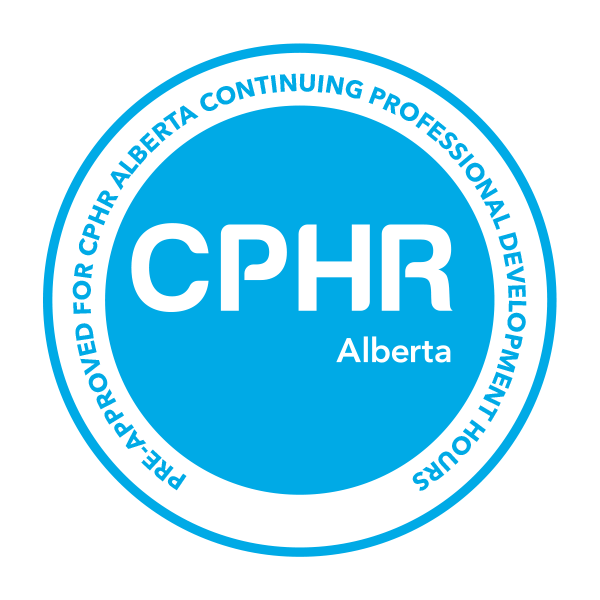
This program has been approved by CPHR Alberta for 7.3 Continuing Professional Development hours.
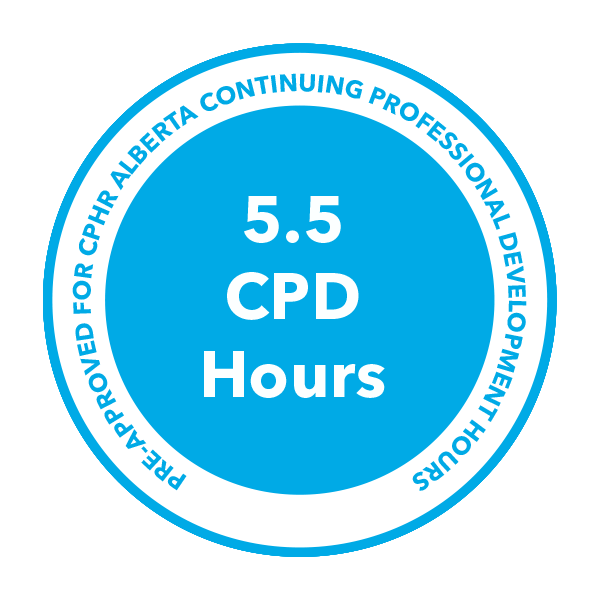
Each Pre-Conference Workshop has been approved by CPHR Alberta for 5.5 Continuing Professional Development hours.






